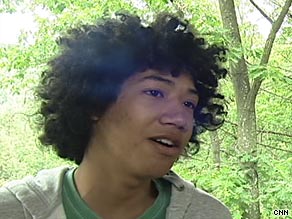This archived information tale is offered only for your personal, non-commercial use. Facts in the story might be outdated or superseded by extra info. Reading or replaying the story in its archived form does not represent a republication of the tale.
WASHINGTON (AP) — Much easier lessons, considerably less research and plenty of sporting activities — this is how American large schools are considered by learners from other countries learning in the U.S.
In spite of a push in recent several years to make the U.S. instruction procedure far more competitive and efficient, overseas trade pupils continue on to watch American higher faculty knowledge as a great deal much less stimulating, according to a review published Wednesday.
“You get this experience — the young ones from abroad arrive in this article, they spend a year, they believe that university is less difficult listed here,” claimed Tom Loveless, a fellow with the Brown Center on Education and learning Plan with the Brookings Establishment. “We consider we have made fantastic strides in creating our educational institutions far more challenging, in this article is at minimum a single exterior team that is in simple fact saying they are not terribly hard.”
Although the findings surface to corroborate worldwide college student assessment assessments, in which American educational institutions path guiding several formulated nations, some authorities disputed the methodology and the underlying principles of Loveless’ analyze, stating that foreign exchange learners did not characterize typical young people in their residence nations around the world and that the concentrate on athletics wasn’t automatically a terrible factor.
In the study, carried out past spring, 259 teens from various international locations in contrast their knowledge in American educational facilities to that in their home international locations. All the learners had been in the U.S. as part of the AFS Intercultural Plans, an global youth trade group.
Forty-4 p.c of respondents stated U.S. students invest “a lot a lot less” time on schoolwork than at their household countries, while 21 per cent assumed they commit “a tiny much less.” Questioned, how challenging their classes are in the U.S., 66 per cent reported they are “considerably easier” and 24 % explained “a minor simpler.” The effects were very similar in contrast to a related study Loveless done in 2001, but the distinctions ended up additional pronounced.
Requested about the value of sports for U.S. learners, 64 percent of respondents explained it is “considerably much more” significant to do effectively in sporting activities in the U.S. and 23 percent reported “a very little additional” critical. By distinction, 16 percent mentioned the concentrate on math was “a great deal a lot less” in America and 32 per cent explained it was “a minor a lot less,” though 40 per cent considered it was the exact same as in their residence nations around the world. Lastly, 53 p.c of respondents felt it is “a great deal considerably less” vital to U.S. teenagers to examine a 2nd language and 27 p.c stated it was “a very little considerably less” so.
“So the youngsters are saying, in conditions of my peer teams in my house state, our peer culture benefits achievements at math a lot more than it does in the U.S. and it does not reward sporting activities so a lot,” Loveless reported.
But Jack Buckley, senior vice president for research and evaluation at American Institutes for Investigate, claimed that the methodology for Loveless’ analyze does not make sense.
“It’s unlikely that international trade learners are a especially agent sample of their residence countries,” Buckley claimed, adding that these learners are possible a lot more bold, appear from wealthier families and consequently go to superior schools. AFS claimed that its one particular-yr system in the U.S. can charge up to $16,000, even though some pupils get scholarships.
Buckley also mentioned that American large faculties can be substantially distinct from one yet another. He cited an worldwide university student accomplishment examine named PISA which past yr rated the US 25th out of 50 collaborating international locations, below Canada, Britain and Poland. Whilst the common math rating for the entire state was 470, the wealthiest universities scored 530, equivalent to Japan and Finland, while the poorest universities scored 427, on par with Chile and United Arab Emirates.
“Any one who tells you they generalize about American substantial schools by just hunting at scores and a couple of numbers is underestimating the variability in American training,” Buckley said.
Martin Carnoy, professor at the Graduate College of Training at Stanford College, explained that though some moms and dads overseas like their children to concentrate only on research, in the American tradition quite a few moms and dads think that taking part in athletics will make one particular a nicely-rounded person and teaches them significant social skills these types of as teamwork and perseverance. Also, it helps make the students come to feel great.
“We do set far more emphasis on sporting activities, we do put extra emphasis on other things to do, it is enjoyment!” Carnoy stated. “You are a teenager, have a fantastic time, the rest of life is going to be hard. I do not know If it’s these types of a condemnation of our faculty technique. It depends what you want.”
Abdalla Fadhili Abdalla, 16, an trade college student from Kenya agreed with Loveless’ conclusions, saying he found his U.S. significant university to be significantly less demanding than at household — the days are shorter, there are much less topics and much less homework.
“University is a lot easier here and more challenging in Kenya, I have a lot of research in Kenya,” Abdalla claimed. At the same time, he enjoys weightlifting at his Maryland significant school, declaring: “I think it truly is variety of very good to blend sports activities and scientific tests.”
Copyright © The Affiliated Push. All rights reserved. This content could not be printed, broadcast, rewritten or redistributed.

